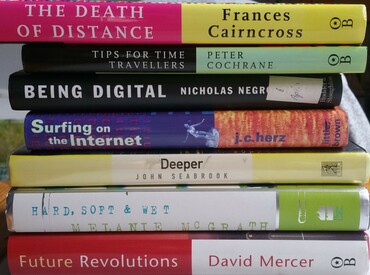Open season
 With no ado, here's the money quote:
With no ado, here's the money quote:
The [US Trade Representative] team is keen to move into the formal phase of negotiations. Ahead of the publication of UK negotiating objectives, there now little that we will be able to achieve in further pre-negotiation engagement. USTR officials noted continued pressure from their political leadership to pursue an FTA [free trade agreement] and a desire to be fully prepared for the launch of negotiations after the end of October. They envisage a high cadence negotiation - with rounds every 6 weeks - but it was interesting that my opposite number thought that there would remain a political and resource commitment to a UK negotiation even if it were thought that the chances of completing negotiations in a Trump first term were low. He felt that being able to point to advanced negotiations with the UK was viewed as having political advantages for the President going in to the 2020 elections. USTR were also clear that the UK-EU situation would be determinative: there would be all to play for in a No Deal situation but UK commitment to the Customs Union and Single Market would make a UK-U.S. FTA a non-starter.
This quote appears on page two of one of the six leaked reports that UK Labour leader Jeremy Corbyn flourished at a press conference this week. The reports summarize the US-UK Trade and Investment Working Group's efforts to negotiate a free trade agreement between the US and post-Brexit Britain (if and when). The quote dates to mid-July 2019; to recap, Boris Johnson became prime minister on July 24 swearing the UK would exit the EU on October 31.
Three key points jump out:
- Donald Trump thinks a deal with Britain will help him win re-election next year. This is not a selling point to most people in Britain.
- The US negotiators condition the agreement on a no-deal Brexit - the most damaging option for the UK and European economies. Despite the last Parliament's efforts, this could still happen because two cliff edges still loom: the revised January 31 exit date, and December 2020, when the transition period is due to end (and which Johnson swears he won't extend). Whose interests is Johnson prioritizing here?
- Wednesday's YouGov model poll predicts that Johnson will win a "comfortable" majority, suggesting that the cliff edge remains a serious threat.
At Open Democracy, Nick Dearden sums up the worst damage. Among other things, it shows the revival of some of the most-disliked provisions in the abandoned Transatlantic Trade Investment Partnership treaty, most notably investor-state dispute resolution (ISDS), which grants corporations the right to sue governments that pass laws they oppose in secret tribunals. As Dearden writes, these documents make clear that "taking back control" means "giving the US control". The Trade Justice Movement's predictions from earlier this year seem accurate enough.
On Twitter, UKTrade Forum co-founder David Henig has posted a thread explaining why adopting a US-first trade policy will be disastrous for British farmers and manufacturers.
Global Justice's analysis highlights both the power imbalance, and the US's demands for free rein. It's also clear that Johnson can say the NHS is not on the table, Trump can say the opposite, and both can be telling some value of truth, because the focus is on pharmaceutical pricing and patent extension. An unscrupulous government filled with short-term profiteers might figure that they'll be gone by the time the costs become clear.
For net.wars, this is all background and outside our area of expertise. The picture is equally alarming for digital rights. In 1999, Simon Davies predicted that data protection would become a trade war between the US and EU. Even a partial reading of these documents suggests that now, 20 years on, may be the moment. Data protection is a hinge, in that you might, at some expense, manage varying food standards for different trading regions, but data regimes want to be unitary. The UK can either align with the EU, GDPR, which enshrines privacy and data protection as human rights, or with the US and its technology giants. This goes double if Max Schrems, whose legal action brought down the Safe Harbor agreement, wins his NOYB case against Privacy Shield. Choose the EU and GDPR, and the US likely walks, as the February 2019 summary of negotiation objectives (PDF) makes plain. That document also is clear that the US wants to bar the UK from mandating local data storage, restricting cross-border data flows, imposing customs duties on digital products, requiring the disclosure of computer code or algorithms, and holding online platforms liable for third-party content. Many of these are opposite to the EU's general direction of travel.
The other hinge issue is the absolute US ban on mentioning climate change. The EU just declared a climate emergency and set out an action list.
The UK cannot hope to play both sides. It's hard to overstress how much worse a position these negotiations seem to offer the UK, which *is* a full EU partner, but which will always be viewed by the US as a lesser entity.
Illustrations: A large bird attacking a stag (Hendrik Hondius, 1610; from LA County Museum of Art, via Wikimedia.
Wendy M. Grossman is the 2013 winner of the Enigma Award. Her Web site has an extensive archive of her books, articles, and music, and an archive of earlier columns in this series. Stories about the border wars between cyberspace and real life are posted occasionally during the week at the net.wars Pinboard - or follow on Twitter.


